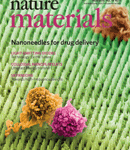Photos Helping Researchers Understand Juvenile Diabetes
If a picture is worth a thousand words, UF Health Type 1 diabetes researchers and their colleagues have tapped into an encyclopedia, revealing new...
Bigger Capsules the Key to Transplanting Islet Cells?
Something as simple as changing the size of the cell-carrying spheres may be the answer to the problem researchers have been having when it...
Serious Diabetes Complications Increasing Among American Youth
A potentially life-threatening complication of diabetes, diabetic ketoacidosis, has increased by 55 percent in youths diagnosed with type 1 diabetes. The incidence of a...
Antipsychotic and Anti-depressant Drugs Given to Children Increases Diabetes Risk
Antipsychotic drugs prescribed to children and adolescents with disruptive behaviors, such as ADHD, schizophrenia or bipolar disorder, can cause Type 2 diabetes and obesity....
Experts: Greater Safety Review Needed for Insulin pumps
According to a joint statement by the American Diabetes Association and the European Association for the Study of Diabetes about the safety and efficacy...
Additive Manufacturing to Make Diabetes Management Better, Cheaper, More Comfortable
Engineers are using additive manufacturing to create an improved type of glucose sensor for diabetes patients. It will become part of a system that...
Teens and Young Adults with Type 1 Diabetes Welcome Peer Mentoring
Majority of those surveyed expressed an interest in a peer mentoring program to improve diabetes control.
Human Skin Cells May Help Treat Diabetes
Starting from human skin cells, researchers have created human insulin-producing cells that respond to glucose and correct blood-sugar levels.
People with Type 1 Diabetes Live Longer with Early Blood Glucose Control
People with type 1 diabetes who intensively control their blood glucose (blood sugar) early in their disease are likely to live longer than those who do not.
1-in-3 Type 1 Diabetics Still Produce Insulin Years After Being Diagnosed
About one-third of type 1 diabetics (T1D) produce insulin even upward of forty years from initial diagnosis, according to a new study.
Type 1 Diabetics’ Blood Sugar Defense Mechanisms Restored After Islet Cell Transplantation
Type 1 diabetics who have developed low blood sugar (hypoglycemia) as a complication of insulin treatments over time are able to regain normal internal recognition of the condition after receiving pancreatic islet cell transplantation.
Researchers Turn Human Embryonic Stem Cells Into Billions of Human Insulin Producing Cells
Researchers announced that they have made a giant leap forward in the quest to find a truly effective treatment for type 1 diabetes.
Long-Acting Insulin Safer and More Effective for People with Type 1 Diabetes
Long-acting insulin is safer and more effective than intermediate-acting insulin for patients with Type 1 diabetes, according to new research.
Study: Technique May Restore Ability to Produce Insulin for Type 1 Diabetics
Study finds that a peptide called caerulein can convert existing cells in the pancreas into those cells destroyed in type 1 diabetes-insulin-producing beta cells.
New Causes of Diabetes Discovered
Research has revealed two new genetic causes of neonatal diabetes.
New Procedure Offers Improved Outcomes for Type 1 Diabetic Patients
The latest approach to islet transplantation has produced substantially improved results for patients with type 1 diabetes, and may offer a more durable alternative to a whole pancreas transplant.










